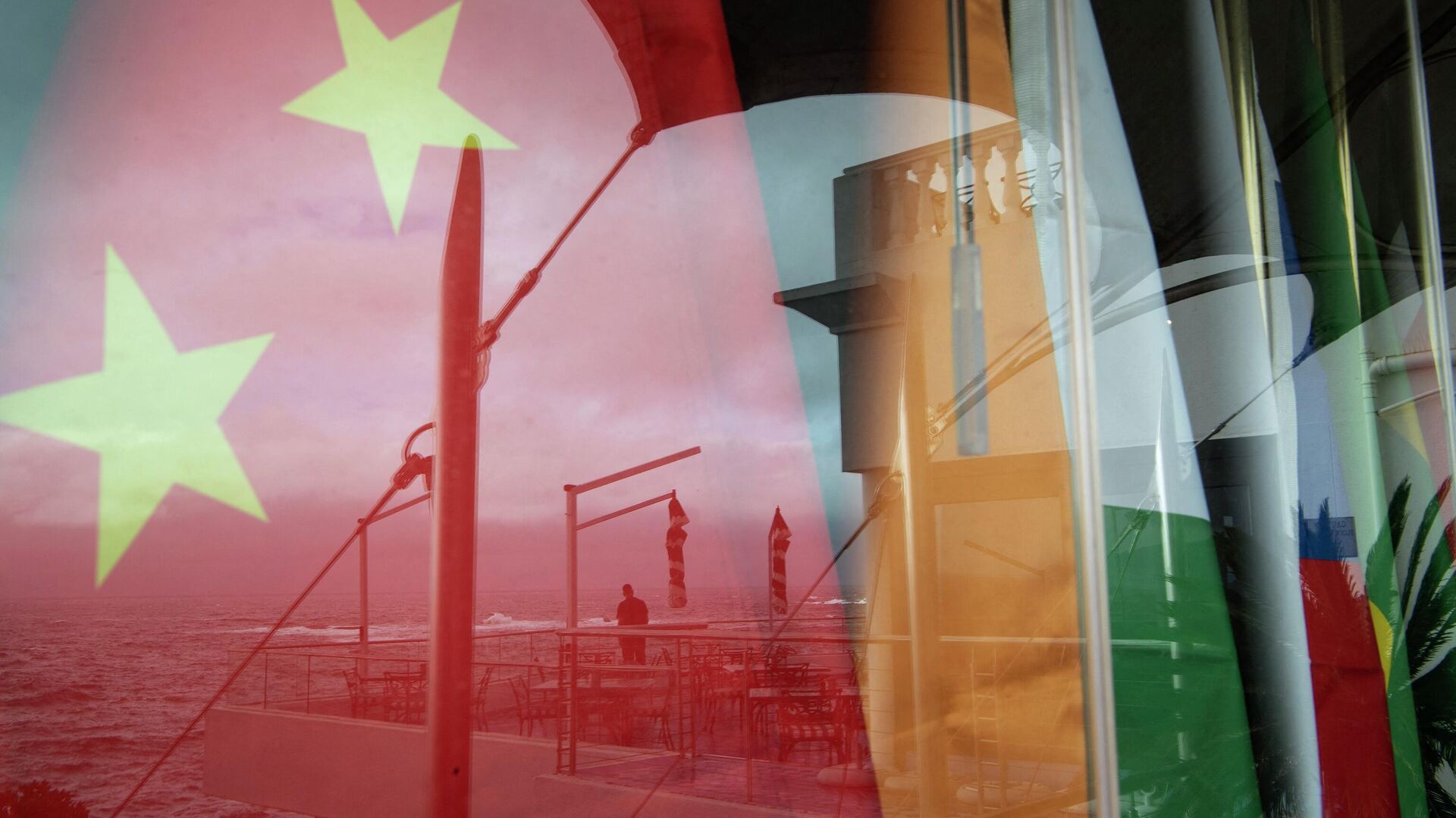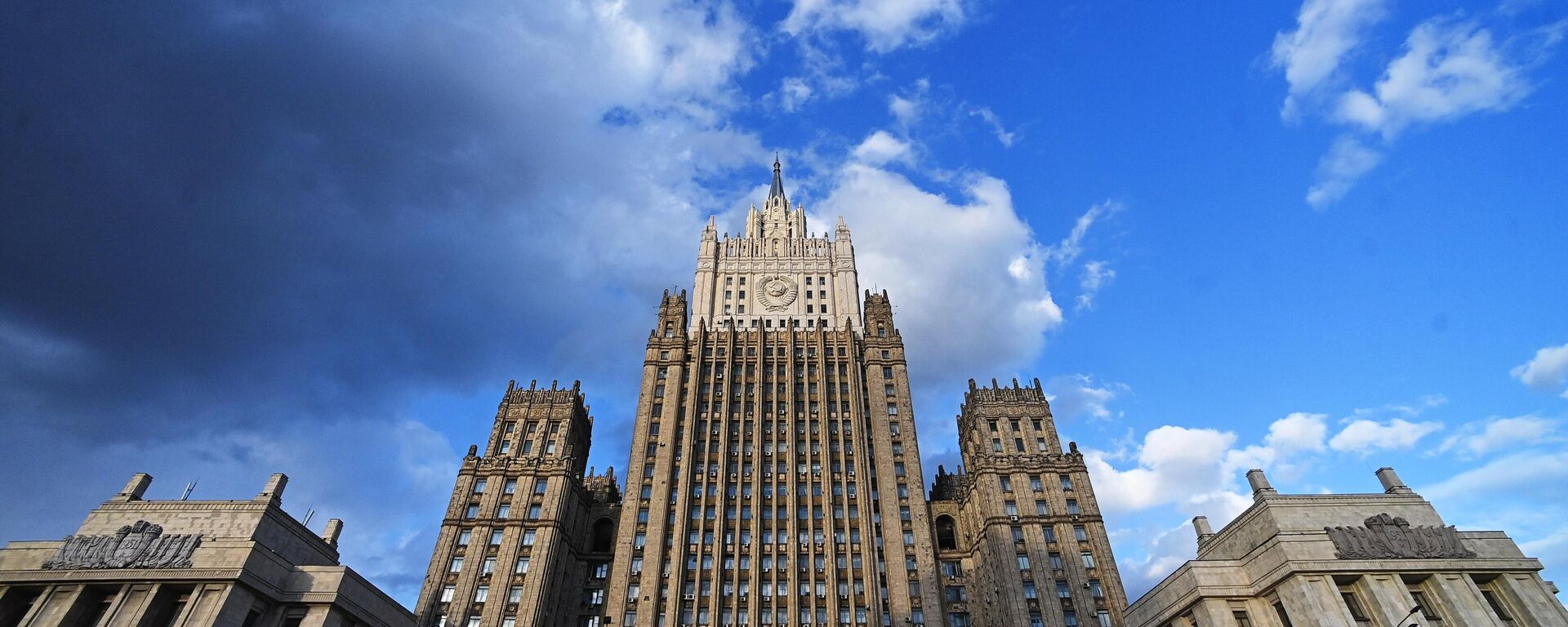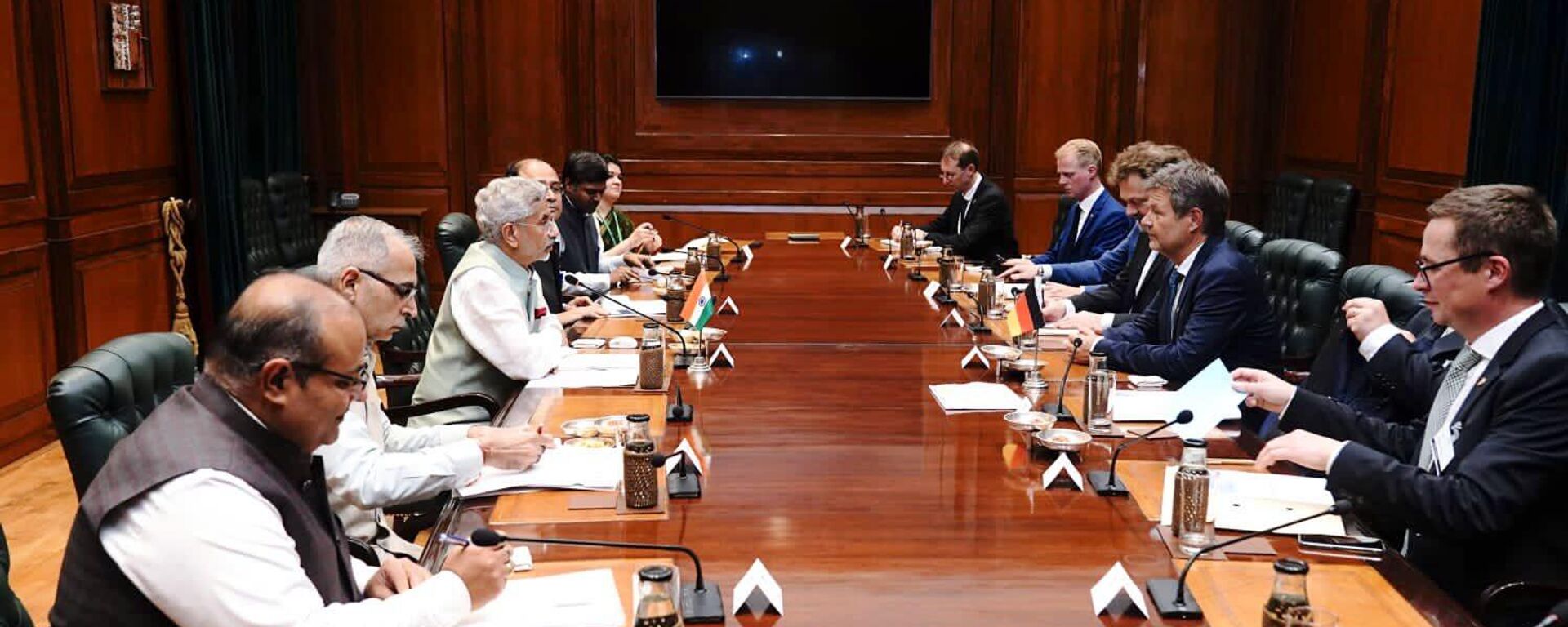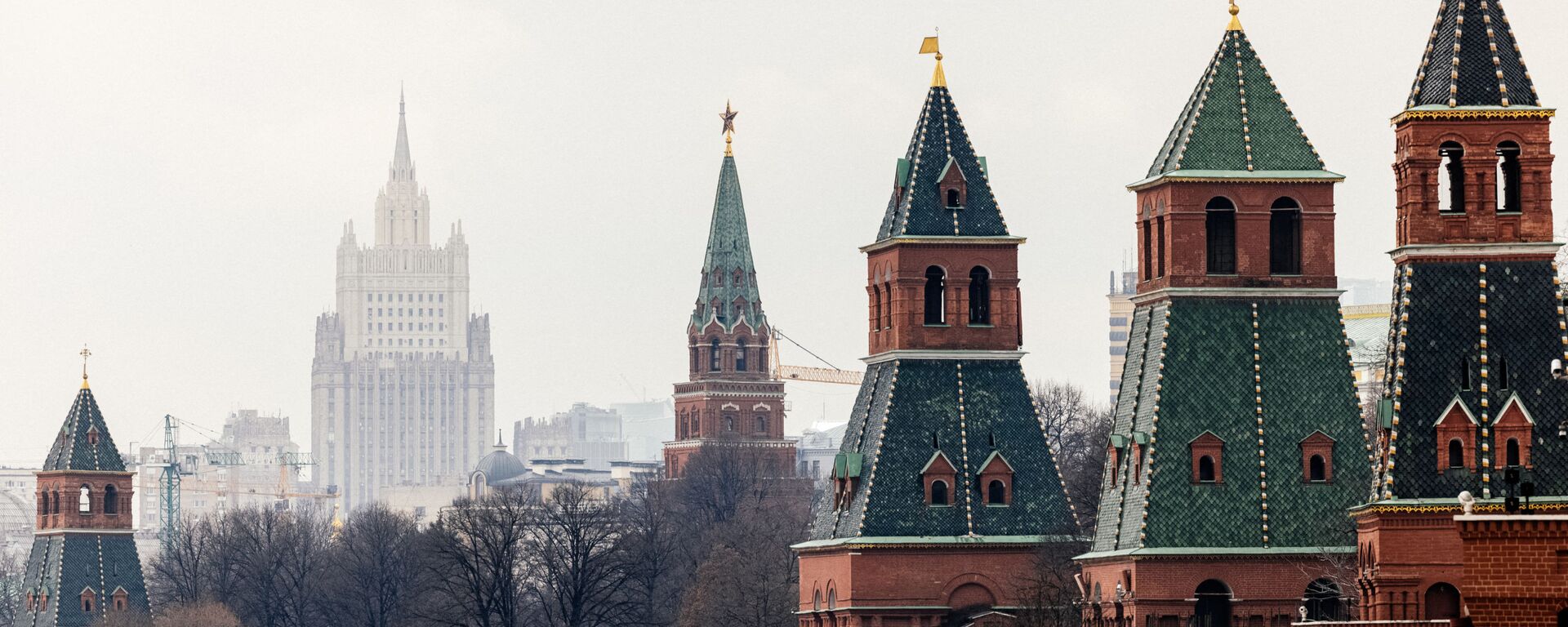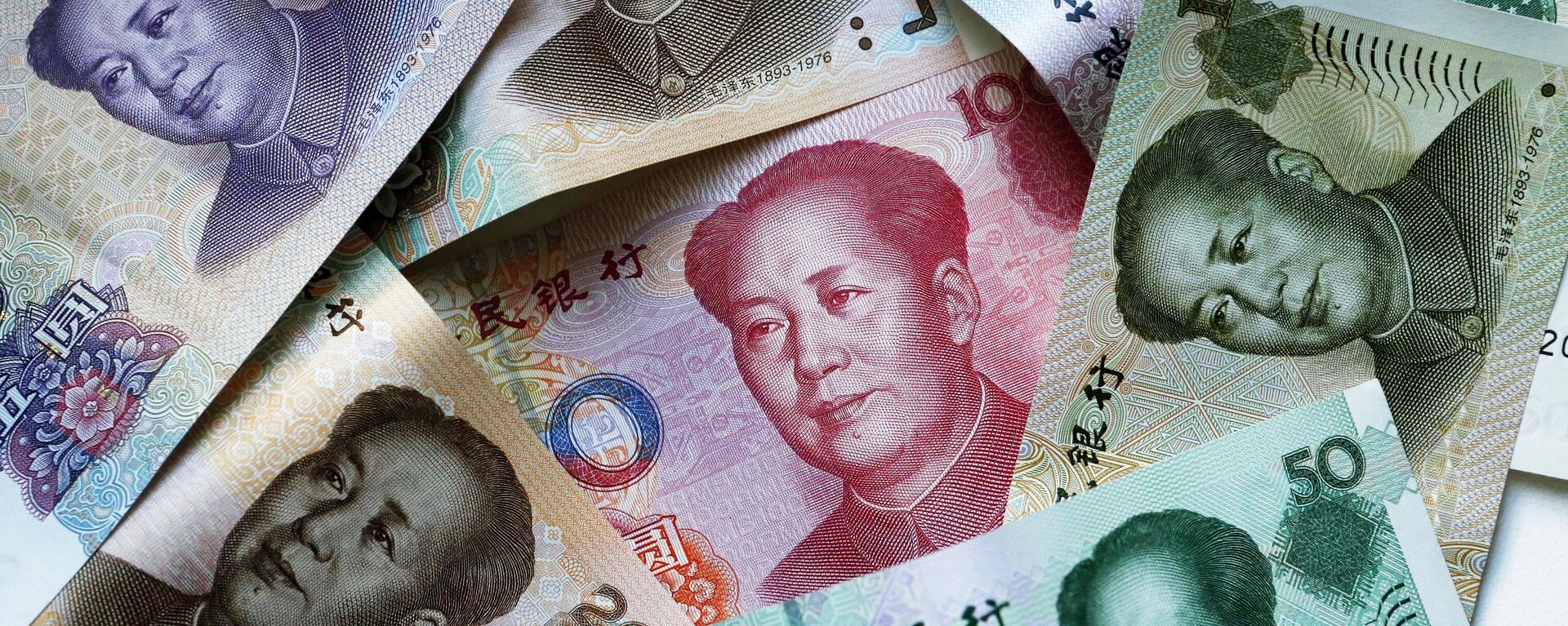https://sputnikglobe.com/20230809/global-south-charts-own-course-in-geopolitics--trade-ditches-us-led-world-order-1112476532.html
Global South Charts Own Course in Geopolitics & Trade, Ditches US-Led World Order
Global South Charts Own Course in Geopolitics & Trade, Ditches US-Led World Order
Sputnik International
Countries of the Global South are increasingly refusing to respond to the US-led saber-rattling of the West against Russia, or pick a side in Washington’s standoff with China, a US report acknowledged.
2023-08-09T10:56+0000
2023-08-09T10:56+0000
2023-08-09T13:15+0000
world
russia
china
brics
brics new development bank (ndb)
naledi pandor
lula da silva
joko widodo
https://cdn1.img.sputnikglobe.com/img/07e7/08/09/1112476274_0:161:3071:1888_1920x0_80_0_0_b1161b20879adf533d151b1ccd046b6a.jpg
Countries of the so-called Global South are increasingly refusing to respond to the US-led saber-rattling of the West against Russia, or pick a side in Washington’s standoff with China, a US report has acknowledged.Whether it is NATO's proxy war against Russia in Ukraine, trade, or embracing the accelerating trend towards global de-dollarization, the Global South is "breaking away from the US-led world order," the outlet conceded. As recent developments show, these developing countries are, to an increasing extent, emerging as sovereign and independent players, refusing to be manipulated by the rules written by the US and its Western partners. Shift in Global South GeopoliticsCountries of the Global South were reportedly in a minority at the recently held meeting on Ukraine in Jeddah, Saudi Arabia. “Out of about 40 participants, there were about 15 [from the Global South], and four or five joined via a video link. Russia was not invited," a Moscow source told Sputnik. A majority of the participants were from Western countries which pump Kiev with arms.The talks on Ukraine in Saudi Arabia were fated not to bring any diplomatic result, as Russia did not participate in them, Russian Ambassador to Washington Anatoly Antonov said.Back in February 2022, 32 countries, including China, India, South Africa, the Central African Republic, and Iran, abstained from a United Nations resolution demanding that Russia withdraw its forces from Ukraine, recalled the report cited earlier. At the time, Moscow launched a special operation to demilitarize Ukraine, responding to calls from the Donetsk and Lugansk People's Republics for help in countering the continued aggression of the Kiev regime. As a response to the launched operation, Western nations unleashed a sweeping sanctions campaign against Russia, hoping to “cripple” its economy. In effect, the self-harming restrictions brought with them immediate blowback for countries that fell in line with the Washington-driven narrative. The result – an energy crisis in Europe, soaring inflation, and looming prospects of de-industrialization, like in the case of Germany.However, for countries of the Global South that refused to toe the US line, fresh opportunities were opened up. While Germany’s and other EU nations' overall economic growth has suffered significantly since they opted to stop the imports of Russian energy, India, for example, imported nearly 32 million tons of crude from Russia in 2022-23, according to data from the Indian Commerce Ministry. India has continuously been resisting pressure from the G7 nations to reduce its crude imports from Russia. Furthermore, driven by a surge in Russian energy exports to India, Moscow emerged as New Delhi's third-largest trading partner for the first time in history in late July.At the same time, the Russia-Ukraine conflict spurred the trend towards a new multipolar global security and financial order. Along with recent failures of the Western financial system, there has been boosted interest in blocs such as BRICS, offering alternatives, including new currencies for global trade, and a better deal for the Global South. A number of other countries intend to join the economic bloc, including Algeria, Argentina, Egypt, Iran, Indonesia, Saudi Arabia, Turkiye, the United Arab Emirates, and others. 23 countries have officially expressed their interest in joining BRICS, according to South African International Relations Minister Naledi Pandor. South Africa's top diplomat in charge of relations with the BRICS bloc said there was "an equal number of countries that have informally expressed interest in becoming BRICS members ... (including) all the major Global South countries." South Africa, which assumed the rotating BRICS presidency in January, is to host the historic 15th Summit of BRICS nations in August.Global South Accelerating De-DollarizationThe economic war waged by the US against Russia since February 2022, which involved the seizure of Russian foreign exchange reserves denominated in US dollars, has dealt a serious blow to the reputation of the greenback as world’s premiere reserve currency. Over the past several months, many countries across the world have started seeking to steer clear of the US dollar in foreign trade, sparking talks about the prospects of de-dollarization in the not-so-distant future.Brazilian President Luiz Inácio Lula da Silva queried “who decided that the dollar” should be all-powerful, as he visited China in April. He also recently expressed his support for a BRICS currency, asking: “Why can’t an institution like the BRICS bank have a currency to finance trade relations between Brazil and China, between Brazil and all the other BRICS countries?”Back in February, Brazil signed a memorandum with China in order to establish “yuan clearing arrangements,” according to Chinese media, with Argentina also announcing in April its plans to use yuan to pay for goods from the Asian powerhouse.Bolivia recently joined the ranks of countries that use currencies other than the US dollar in foreign trade. Bolivian Economy Minister Marcelo Montenegro said his country follows "a pattern at the level of international trade, that is generating a progressive increase in the use of the yuan in foreign trade," according to media reports.The Bank of Thailand is also reportedly mulling over plans to diversify its basket of currencies, to ensure it is less tied to the US dollar.Nirupama Menon Rao, India’s ex-foreign secretary, when underscoring the increasing use of digital payments to developing nations by her nation, was cited as saying in June that, “India’s outreach to countries in the Global South has been successful.”BRICS’ New Development Bank (NDB) is interested in enhancing the use of national currencies in settlements to strengthen the markets of the bank's member states, NDB President Dilma Vana Rousseff said in late July.Fighting Resource 'Drain'Shaking off the vestiges of their colonial past, many of these countries, spanning Africa, Asia, and Latin America, are now seeking to control their own resources. Factories are being built in their own countries rather than just allowing Western countries to siphon raw materials. Ghana announced in June that, following in the footsteps of Namibia and Zimbabwe, it is preparing to ban exports of lithium. The chemical element is essential for electric vehicles. Ghana will not export green minerals in raw state, the minister for lands and natural resources, Samuel Abu Jinapor, said.China, bedeviled by the US, is meanwhile reportedly helping countries of the Global South to ditch the so-called “resource curse.” China’s Zijin Mining Group is said to be in talks to build a plant in Argentina to transform the nation’s vast lithium reserves into cathodes, which are used to make electric vehicle (EV) batteries. Brazil, Chile, and Indonesia are also reportedly seeking investments in EV battery plants from Beijing rather than Washington.While many US allies in Europe have to their own detriment abandoned an independent position on security issues amid the Ukraine crisis, countries of the Global South are apparently intent on charting their own future.
https://sputnikglobe.com/20230807/moscow-expects-brics-states-to-inform-russia-about-course-of-jeddah-talks-on-ukraine-1112437552.html
https://sputnikglobe.com/20230722/1112044847.html
https://sputnikglobe.com/20230331/russias-new-foreign-policy-concept-marks-global-south-renaissance--end-of-west-centered-order-1109016212.html
https://sputnikglobe.com/20230729/bolivia-joins-de-dollarization-trend-by-using-chinese-yuan-in-foreign-trade-1112249493.html
https://sputnikglobe.com/20230418/global-south-continues-trend-against-us-economic-dominance-1109604326.html
russia
china
Sputnik International
feedback@sputniknews.com
+74956456601
MIA „Rossiya Segodnya“
2023
News
en_EN
Sputnik International
feedback@sputniknews.com
+74956456601
MIA „Rossiya Segodnya“
Sputnik International
feedback@sputniknews.com
+74956456601
MIA „Rossiya Segodnya“
global south, dedollarization, developing countries, nato's proxy war against russia in ukraine,
global south, dedollarization, developing countries, nato's proxy war against russia in ukraine,
Global South Charts Own Course in Geopolitics & Trade, Ditches US-Led World Order
10:56 GMT 09.08.2023 (Updated: 13:15 GMT 09.08.2023) Sanctions against Russia over the Ukraine crisis, US “trade wars” with China, the Washington-driven policy of “containment” and weaponization of the dollar have all triggered tremendous changes on the international arena, with countries of the Global South seeking a better deal for themselves.
Countries of the so-called
Global South are increasingly refusing to respond to the US-led saber-rattling of the West against Russia, or pick a side in Washington’s standoff with China, a US report has acknowledged.
Whether it is NATO's proxy war against Russia in Ukraine, trade, or embracing the accelerating trend towards
global de-dollarization, the Global South is "
breaking away from the US-led world order," the outlet conceded. As recent developments show, these developing countries are, to an increasing extent, emerging as sovereign and independent players, refusing to be manipulated by the rules written by the US and its Western partners.
Shift in Global South Geopolitics
Countries of the Global South were reportedly in a minority at the recently held meeting on Ukraine in Jeddah, Saudi Arabia. “Out of about 40 participants, there were about 15 [from the Global South], and four or five joined via a video link. Russia was not invited," a Moscow source told Sputnik. A majority of the participants were from Western countries which pump Kiev with arms.
The talks on Ukraine in Saudi Arabia were fated not to bring any diplomatic result, as Russia did not participate in them, Russian Ambassador to Washington Anatoly Antonov said.
“Washington tried to show a beautiful picture of US support from the 'Global South' states in the effort to isolate Russia. To win over the countries that do not support the 'rules-based order.' Hence the rather expected result of the meeting - the lack of a common position on how to move forward in resolving the crisis in Ukraine. There was no support for Kiev's notorious 'peace formula' at all," Antonov said.
Back in February 2022, 32 countries, including China, India, South Africa, the Central African Republic, and Iran, abstained from a United Nations resolution demanding that Russia withdraw its forces from Ukraine, recalled the report cited earlier. At the time, Moscow launched a special operation to demilitarize Ukraine, responding to calls from the Donetsk and Lugansk People's Republics for help in countering the continued aggression of the Kiev regime. As a response to the launched operation, Western nations unleashed a sweeping sanctions campaign against Russia, hoping to “cripple” its economy. In effect, the self-harming restrictions brought with them immediate blowback for countries that fell in line with the Washington-driven narrative. The result – an energy crisis in Europe, soaring inflation, and looming prospects of de-industrialization, like in the case of Germany.
However, for countries of the Global South that refused to toe the US line, fresh opportunities were opened up. While Germany’s and other EU nations' overall economic growth has suffered significantly since they opted to
stop the imports of Russian energy, India, for example, imported nearly 32 million tons of crude from Russia in 2022-23, according to data from the Indian Commerce Ministry. India has continuously been
resisting pressure from the G7 nations to reduce its crude imports from Russia. Furthermore, driven by a surge in Russian energy exports to India, Moscow emerged as New Delhi's third-largest trading partner for the first time in history in late July.
At the same time, the Russia-Ukraine conflict spurred the trend towards a new multipolar global security and financial order. Along with recent failures of the Western financial system, there has been boosted interest in blocs such as BRICS, offering alternatives, including new currencies for global trade, and a better deal for the Global South. A number of other countries intend to join the economic bloc, including Algeria, Argentina, Egypt, Iran, Indonesia, Saudi Arabia, Turkiye, the United Arab Emirates, and others.
23 countries have officially expressed their interest in joining BRICS, according to South African International Relations Minister Naledi Pandor. South Africa's top diplomat in charge of relations with the BRICS bloc said there was "an equal number of countries that have informally expressed interest in becoming BRICS members ... (including) all the major Global South countries." South Africa, which assumed the rotating BRICS presidency in January, is to host the historic 15th Summit of BRICS nations in August.
Global South Accelerating De-Dollarization
The economic war waged by the US against Russia since February 2022, which involved the seizure of Russian foreign exchange reserves denominated in US dollars, has dealt a serious blow to the reputation of the greenback as world’s premiere reserve currency. Over the past several months, many countries across the world have started seeking to steer clear of the US dollar in foreign trade, sparking talks about the prospects of de-dollarization in the not-so-distant future.
Brazilian President Luiz Inácio Lula da Silva queried “who decided that the dollar” should be all-powerful, as he visited China in April. He also recently expressed his support for a BRICS currency, asking: “Why can’t an institution like the BRICS bank have a currency to finance trade relations between Brazil and China, between Brazil and all the other BRICS countries?”
Back in February, Brazil signed a memorandum with China in order to establish “yuan clearing arrangements,” according to Chinese media, with Argentina also announcing in April its plans to use yuan to pay for goods from the Asian powerhouse.
Bolivia recently joined the ranks of countries that use currencies other than the US dollar in foreign trade. Bolivian Economy Minister Marcelo Montenegro said his country follows "a pattern at the level of international trade, that is generating a progressive increase in the use of the yuan in foreign trade," according to media reports.
The Bank of Thailand is also reportedly mulling over plans to diversify its basket of currencies, to ensure it is less tied to the US dollar.
Nirupama Menon Rao, India’s ex-foreign secretary, when underscoring the increasing use of digital payments to developing nations by her nation, was cited as saying in June that, “India’s outreach to countries in the Global South has been successful.”
BRICS’ New Development Bank (NDB) is interested in enhancing the use of national currencies in settlements to strengthen the markets of the bank's member states, NDB President Dilma Vana Rousseff said in late July.
Fighting Resource 'Drain'
Shaking off the vestiges of their colonial past, many of these countries, spanning Africa, Asia, and Latin America, are now seeking to control their own resources. Factories are being built in their own countries rather than just allowing Western countries to siphon raw materials. Ghana announced in June that, following in the footsteps of Namibia and Zimbabwe, it is preparing to ban exports of
lithium. The chemical element is essential for electric vehicles. Ghana will not export green minerals in raw state, the minister for lands and natural resources, Samuel Abu Jinapor, said.
China,
bedeviled by the US, is meanwhile reportedly helping countries of the Global South to ditch the so-called “resource curse.” China’s
Zijin Mining Group is said to be in talks to build a plant in Argentina to transform the nation’s vast lithium reserves into cathodes, which are used to make electric vehicle (EV) batteries. Brazil, Chile, and Indonesia are also reportedly seeking investments in EV battery plants from Beijing rather than Washington.
While many US allies in Europe have to their own detriment abandoned an independent position on security issues amid the Ukraine crisis, countries of the Global South are apparently intent on charting their own future.
